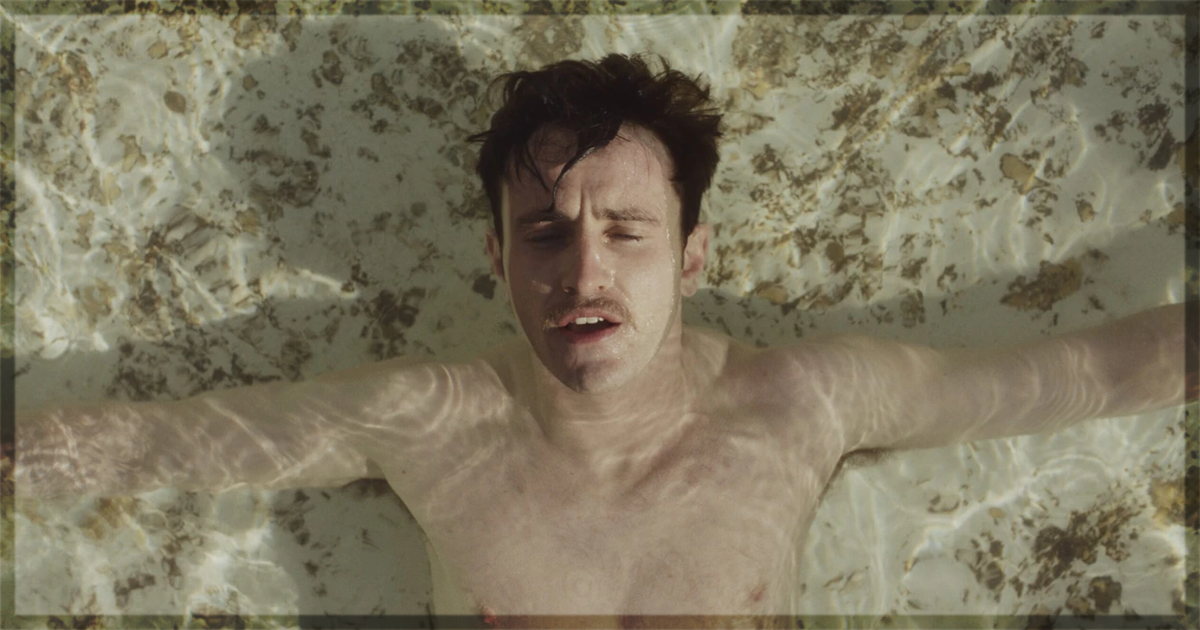Paul Mescal has the very rare talent of making unusually good choices. He has made a few damp squibs; nobody loved Carmen but me, and while his charisma carried his stage performance of A Streetcar Named Desire from London to Brooklyn, the whole show was misguided. That said, he has not yet made a boring career choice, and he has always, visibly tried to stretch himself as an actor. It’s extra impressive because he doesn’t need to; his position as the internet’s boyfriend, with an unusually devoted fan presence for someone with such a serious resume, means that he could phone it in without damaging his box office appeal in the slightest.
Therefore the news that Mr. Mescal would be acting opposite one of the internet’s other main boyfriends, Josh O’Connor (and more on him later), in a romance between two ethnomusicologists in the wintry 1920s, had the internet ablaze with anticipation for The History of Sound before the premiere at Cannes. Now the movie has been seen, the anticipation is – correctly – muted, for The History of Sound is a depiction of how good taste and self-restraint can smother an ember before it can catch.
Now there has been some dismay expressed already at the comparisons between The History of Sound and Brokeback Mountain, but on the surface, it’s not inappropriate. Lionel (Mr. Mescal) impresses a stranger named David (Mr. O’Connor) in a bar in Boston by singing him a folk song he didn’t already know. It turns out David is an ethnomusicologist, who spent his childhood rambling with a wealthy uncle through rural England to collect songs. Lionel was raised on a farm in Kentucky, so is one of the people who might have sung for David, except his talents are so considerable they have gotten him up east and into music college. But the family farm is also what spares Lionel conscription into the First World War, where David is sent. After a separation of several years, Lionel is thrilled to receive an invitation from David to spend a few months in the roadless parts of Maine, camping in the woods and visiting remote villages on foot to collect their music. And you’ll never guess what they get up to in the tent at night.
The outdoorsy setting, the class differences and the denouement are indeed reminiscent of the short story by Annie Proulx on which Ang Lee based Brokeback Mountain. Here the author of the short story, Ben Shattuck, adapted the screenplay himself, though perhaps the South African director Oliver Hermanus did not realise that the Maine hiking sequences were oddly unblemished by snow or bad weather. The focus is also less on the songs themselves – though one singer gets to provide a first, middle and last name in addition to her song before vanishing completely – and more on the ways in which the men listen. Sound editor Ruy García and music supervisor Lucy Bright make the wax cylinder recording equipment feel like cutting-edge tech, and the various singers bring a folksy authenticity to their work that never becomes kitsch. (Between this and Sinners we might be having a new revival on our hands.) Emma Canning makes a huge impression in a role that should not be spoiled. It also helps that Mr Mescal is world-class at just looking at stuff, with a real knack for seeming as if he is considering everything for the first time. Mr O’Connor also weaponises his secondary talent, of making hidden depths boil and bubble, as the music flows over him.
But Mr. O’Connor’s true talent is for portraying characters following an agenda so hidden it’s mostly hidden from themselves. His best part (so far) was therefore his one in Challengers, where his hidden agenda was able to be openly discussed with the girl he loved, and which allowed him to display a fiery sexuality that was all the more attractive for being misdirected. But more often his roles – including his other one at this year’s Cannes in The Mastermind – inexplicably tamp down this aspect of his skill and require him to be self-contained. Less like a snake biding its time to strike and more like a tiger drugged and chained for selfies with tourists. Mr. O’Connor keeps taking this kind of part, and keeps visibly fighting against those constraints onscreen. So you’d think that a director who won the Queer Palm back in 2011 would enable two of the most charismatic actors currently working, both of whom are comfortable portraying homosexuality onscreen, to make The History of Sound red, red hot.
It’s not even pink. It barely even blushes.
That has to be singled out in a review because their love story here is meant to be a very big one, the kind that justifies a coda with Chris Cooper as the elderly version of one of the characters. Instead everything is so polite and mannerly it’s not that the love dares not speak its name. In fact the lack of angst from Lionel and David about what happens between them is refreshing. Only the love doesn’t want to impose. It won’t make a fuss. It would rather unroll like this than risk mentioning, much less ask for, what it wants. And sure, that might be pretty relatable to the anxious wide-eyed ingenues (of any gender) who made Mr. Mescal and Mr. O’Connor the internet’s boyfriends, but it’s not a strong enough hook for a movie. If the focus was on the music David and Lionel gathered and their dawning surprise that their desire was for each other instead of the songs, The History of Sound might have worked. But Mr. Hermanus gambled his movie on the appeal of his stars doing the work for him. Unfortunately that was a gamble he lost.
The History of Sound recently screened at the Cannes Film Festival.
Learn more about the film at the Cannes site for the title.


